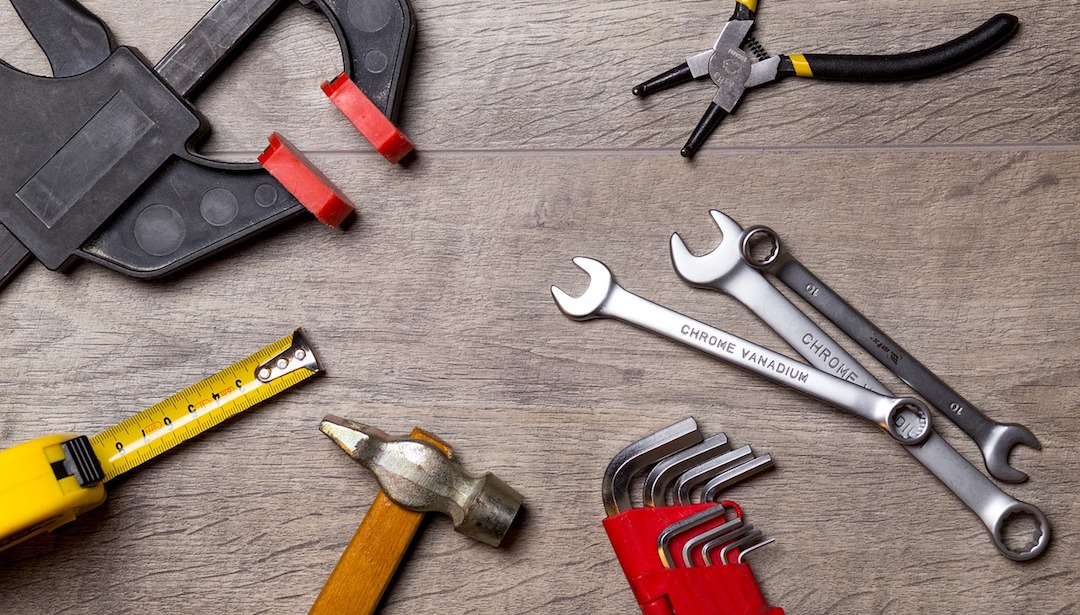It’s important to build up a good credit reputation while you’re still young, as it could be a deal-breaker when it comes to renting a flat or taking out insurance. You’ll always get the best deals and have a higher chance of approval for credit as well.
- Take out a credit card
- Get an overdraft
- Keep your oldest credit agreement open
- Spend within your means
- Sign up for the electoral roll
- Add your name to bills
- Look at your Credit-Score booster tips
What's Included?
Building up a credit reputation is vital in getting great deals and ensuring your chances of being accepted when applying for credit.
With a weak or non-existent credit reputation, you’re more likely to be rejected or get offered inflated rates. If you’re still young (I’ll let you decide that for yourself) then getting started early can help you when you need it.
But it isn’t all about getting accepted for credit. Sometimes, you may need to have a credit check when renting a flat, apartment, or house – if this is the basis of their decision between you and another person, you’ll want to make sure you have a strong credit report. In some cases, your insurance quotes can be impacted by your credit report.
So, young or not, if you plan on taking out any form of credit, including a mortgage or mobile phone contract, or even renting an apartment, getting a job, or taking out insurance – get started now.
1. Take out a credit card
First and foremost, get yourself a credit card. If you’ve never had any credit before, you’re likely to be offered a relatively low credit limit and a high rate – this isn’t anything to be alarmed at. It’s not that you have a bad credit reputation – you just don’t have a credit reputation. You’ve got to show that you can use credit sensibly before you will be offered a lower rate or a higher credit limit.
Use the credit card lightly, using only 10% of your credit limit each month. This shows that you’re not desperate for quick cash. It’s a good idea to use your credit card to pay for items that you’ve budgeted for, rather than spending out of your means.
Be careful to ensure that you pay off the balance in full every month. Paying in full will benefit your credit reputation in several ways:
- You are proving that you can afford the credit card you’ve taken out.
- Paying higher than the minimum payment improves your payment history – if your payment history shows that you regularly pay in full then lenders will be more likely to lend money to you.
- You don’t end up in a cycle of debt – it can be tempting to let debt sit on your card for another month, but you’re just putting future you in trouble. Get rid of the debt early to ensure that you don’t run into any problems later.
- If you pay off your credit card in full each month, you won’t accrue interest. This is vital if you’ve been offered a high rate.
If you’re offered a higher credit limit further down the line, take it. This will increase your total credit limit, so lenders will be able to see that you’re trusted to borrow a large amount of money.
Don’t close this credit card. If this is your first credit agreement, you’ll benefit from keeping it open long term. As long as you use it every now and then, it will benefit your credit report by increasing your credit history time period.
If you choose to take out a credit card to increase your limit, make sure you pay at least the minimum payment every month. This is the case even if you have a 0% promotional period on your credit card. Missing a payment will have a negative impact on your credit report, and the lender is likely to revoke any promotion applied to your account.
2. Take out an overdraft
Again, do this early. As soon as you can, add an overdraft to your bank account. In this case, you don’t need to use it – you will be judged on how often you need to dip into it, so try to ensure you don’t use it often, or at all if you’re able to. Having an overdraft on your bank account shows lenders that your bank trusts you to repay the money. You can also show that you don’t need it, by not using it.
If you tend to see your ‘available balance’ as ‘money you’re allowed to spend’, this may not be ideal for you. You’ve got to be able to resist spending within your overdraft unless it is essential.
Don’t go crazy with it
While it’s great to have an overdraft, if you tend to use it every month, you’re likely to see a negative impact on your credit report. It could be worth consolidating it into a loan to keep out of your overdraft. Consider your options here, but if you’re able to get out of your overdraft, then do so!
3. Create long term relationships
Lenders are more likely to lend you money if they can see that you’ve got a long history with another lender. This might be the bank account that you’ve been using since your parents opened it for you – adding an overdraft to it will turn it into a credit agreement.
Having a long-term credit agreement can do wonders to your credit report, so try to ensure that you keep your first agreement open if it’s a credit card or a bank account. If your first agreement is your electricity or gas, this isn’t feasible, as you’re likely to save money by switching often.
4. Spend within your means
It’s important to not see an overdraft or credit card as free money. This is a mistake that’s often made, especially when given a large interest-free overdraft or credit card and can put the borrower into a cycle of debt. You can also land some hefty fees once a promotional period has come to an end.
What happens if I end up in an overdraft?
In the case of an overdraft – save it for emergencies. Try to make sure you’re only using it when you have no other options. Take a look at the fees that can occur when you use your overdraft as well.
In the case of a credit card – don’t use the money for something you can’t afford, even if you have a high limit. It’s not free money, and you will have to pay it back, so it’s not the ideal means of purchasing the latest iPhone or games console. You could end up paying a great deal in interest, so you’re going to lose money by purchasing it this way.
5. Sign up for the electoral roll
Get yourself on the electoral roll as soon as you’re able to. Not only will this mean that you can vote in elections, but you’ll also be making yourself more creditworthy by increasing your stability.
Registering is super simple; you only need about two minutes and your National Insurance number. If you are at university, you can register to vote in both your hometown and your university town, although you can only vote in one. It’s worth doing this to ensure that you’re able to vote in every general election.
When you move house, add it to your list to make sure you re-register straight away, this keeps up a solid history of electoral roll registration, ensuring that you look your best when you apply.
6. Add your name to the bills
When you move in with housemates it’s common to let one person handle all of the bills. This works for billing and allows you to pay a lump sum to them every month. This is especially helpful if there’s someone who’s naturally organised in your household.
The downfall is that only that person is reaping the benefits of being the named bill payer of the household. If the company reports to any of the three bureaus, then they’re building up a solid payment history on their credit report.
What to do instead
You can ask to add an extra name to the bills, and you should. Make sure everyone in the house is named on at least one bill each. This will benefit you more than just on your credit report, too! You often need proof of address to sign up for the dentist, doctors, library, and even the vet – your bill will count, as long as you are named on it.
Be aware that this could link you and your housemates financially, which means that their creditworthiness will affect yours – this will be the case while you have an open credit agreement that you are both named on.
7. Look at your Credit-Score booster tips
You can take the guesswork out of building your credit with Credit-Score’s booster tips. You just sign up for free and take a look at the ‘Score Boosters’ tab. Here you’ll see a list of actions you can do which will improve your creditworthiness and a list of actions to avoid which will impair your creditworthiness.
Credit-Score offers two fabulous solutions
If you’re preparing to take a mortgage, never apply until you’ve tried our unique and FREE Credit-Score Home app. Our smart technology will tell you what you need to fix so you avoid rejection. The app predicts when you will be able to buy, for how much and tracks your month-by-month progress to mortgage success. We’ve even added your own mortgage broker, so you get the best deals available.
More focused on your credit rating? Well, get started for free with Credit-Score’s 24- Factor Credit Check to truly help you improve your creditworthiness and how lenders view you. (Remember: lenders don’t use your credit score! We’ll show you what lenders look for and how to get your credit report in the best shape possible).
Last updated by Robert Edwards, July 2022






